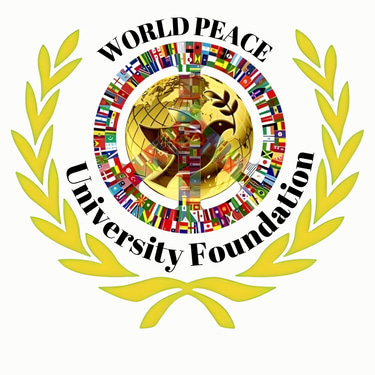Empowering Women for Peace: The Role of UN Women in Conflict Resolution and Gender Equality
Birendra Kumar
4/23/20243 min read


Introduction
Conflict resolution and gender equality are two critical issues that shape the world we live in today. Women, often disproportionately affected by conflict, have historically been underrepresented in peace processes and decision-making. However, organizations like UN Women have been working tirelessly to empower women and promote their active participation in conflict resolution and peacebuilding efforts. In this blog post, we will examine the important role of UN Women in empowering women for peace.
Gender Equality in Conflict Resolution
Gender equality is not only a fundamental human right but also a necessary foundation for a peaceful and sustainable world. Women's meaningful participation in conflict resolution processes is crucial as they bring unique perspectives, experiences, and skills to the table. Their inclusion ensures that the needs and concerns of all members of society are addressed, leading to more effective and sustainable peace agreements.
UN Women plays a significant role in promoting gender equality in conflict resolution through various initiatives. One such initiative is the Women, Peace, and Security agenda, which was adopted by the United Nations Security Council in 2000. This agenda recognizes the importance of women's participation in peace processes and calls for their increased involvement at all levels.
UN Women works closely with governments, civil society organizations, and other stakeholders to advocate for the implementation of the Women, Peace, and Security agenda. They provide technical support, capacity building, and resources to ensure that women's voices are heard and their rights are protected throughout the conflict resolution process.
Empowering Women for Peace
Empowering women is a crucial step towards achieving sustainable peace. UN Women recognizes this and implements various programs and initiatives to empower women in conflict-affected areas. These initiatives aim to enhance women's economic, social, and political opportunities, enabling them to actively participate in decision-making processes and contribute to peacebuilding efforts.
One such program is the Economic Empowerment of Women in Post-Conflict Settings initiative. This initiative focuses on providing women with skills training, access to credit and resources, and opportunities for income generation. By empowering women economically, UN Women helps them become financially independent and reduces their vulnerability to violence and exploitation.
UN Women also works to ensure that women have access to justice and their rights are protected. They support legal and policy reforms that promote gender equality and work towards eliminating discriminatory practices and laws. By strengthening the rule of law and promoting women's access to justice, UN Women contributes to creating an enabling environment for peace and stability.
Challenges and Way Forward
While UN Women's efforts have made significant progress in empowering women for peace, several challenges persist. Gender-based violence, discrimination, and unequal power dynamics continue to hinder women's meaningful participation in conflict resolution processes. Addressing these challenges requires a comprehensive approach that involves not only governments and international organizations but also local communities and individuals.
Education plays a crucial role in challenging gender norms and empowering women. UN Women works to ensure that girls and women have access to quality education, including in conflict-affected areas. Education equips women with knowledge and skills, enabling them to actively participate in decision-making processes and advocate for their rights.
Collaboration and partnerships are also essential in advancing the agenda of women's empowerment for peace. UN Women collaborates with other UN agencies, governments, civil society organizations, and grassroots movements to amplify women's voices and advocate for gender equality. By working together, these stakeholders can create a more inclusive and peaceful world.
Conclusion
UN Women's role in empowering women for peace is crucial in achieving sustainable and inclusive conflict resolution. Through their initiatives, programs, and advocacy efforts, UN Women is working towards creating a world where women's rights are protected, and their voices are heard. However, there is still much work to be done to overcome the challenges that hinder women's meaningful participation in peace processes. By addressing these challenges and promoting gender equality, we can build a more peaceful and equitable world for all.
Connect
Email : info@wpufoundation.org
Follow
Stay Connected with Us
+1 (564)243 9111
World Peace University Foundation is 501(c)(3) nonprofit organization EIN - 99-1863511, All donation is tax dedcutable as federal govt rule. ©2024 WPU-F. All rights reserved.
Address
424 W. Bakerview Road, Ste 105-2056
Bellingham, WA 98226 United States
